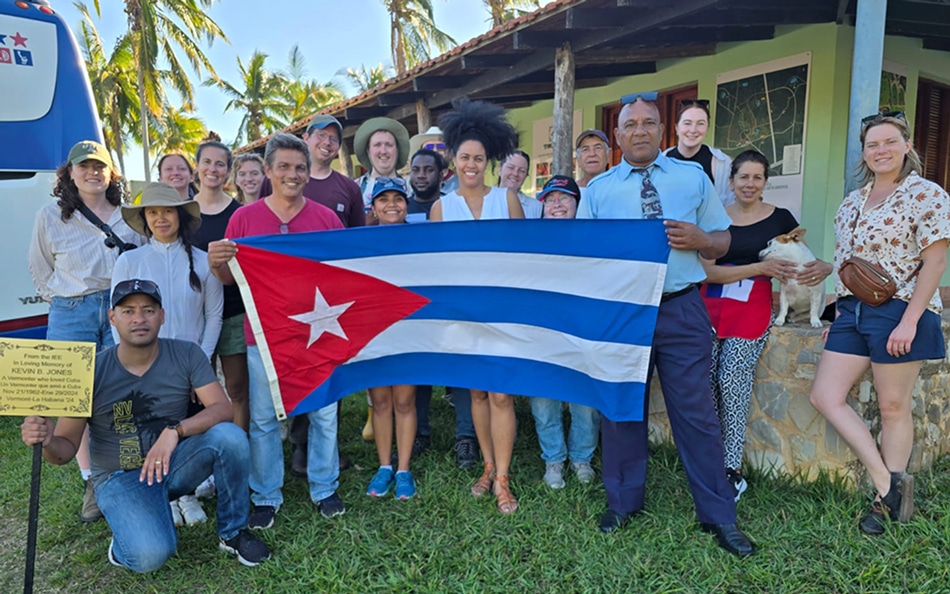In November 2024, the Institute for Energy and the Environment sent 13 students and three faculty and staff to Cuba for its annual Global Sustainability Field Study. Students learned about Cuba’s energy and agricultural sustainability and its vibrant culture.
During the one-week trip, the group toured a solar installation at CubaEnergia, a government organization that conducts renewable energy research and experiments, such as the smart hybrid microgrid connected to its building. Students also visited two of the leading sustainable farms in the area—Finca Marta, a family-run agroecological farm in Caimito, and Organopónico Vivero Alamar, one of Havana’s largest urban organic farms.
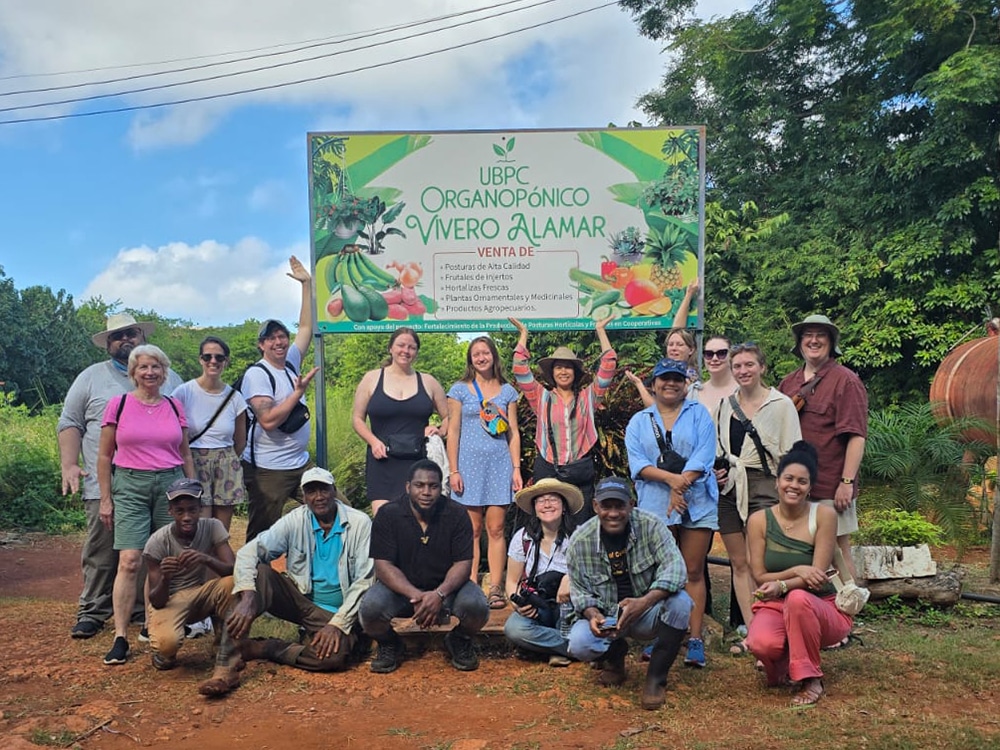
“Participating in the Cuba Field Study was the highlight of my fall semester and truly a once-in-a-lifetime experience,” said Emily Dwight JD/MERL’26. “Comparing the electrical systems of the United States and Cuba brought together concepts from other courses and allowed me to see firsthand how another country operates its electric grid. Experiencing the vibrancy of Cuban culture through its cuisine, art, and interactions with the local people was incredible.”
Gaining Direct Knowledge of Sustainability and Resilience
The Global Sustainability Field Study is part of a broader set of field study and place-based learning opportunities offered by VLGS. These courses enhance students’ cultural competence and understanding of racial and socioeconomic disparities in environmental benefits and harms, diversify their learning experience through exposure to different landscapes and practitioner perspectives, and provide training for hands-on knowledge of natural resources. The Cuba Global Sustainability Field Study provides students with the opportunity to engage with Cuban sustainability experts and advocates from academic institutions, NGOs, and local enterprises. Students participate in lectures on Cuban energy and agricultural policies and go on field visits to see those initiatives in action.
“This course is a great space to learn about resilience around energy and agricultural sustainability, and it’s also an opportunity for students to immerse themselves in the uniqueness of Cuban culture,” said Marnie Avila Alvarez LLM’23, the adjunct professor and former IEE fellow who led the 2024 field study. “Every year, we can see how students’ participation in the class changes their professional and personal perspectives. I came to the Institute for Energy and the Environment at VLGS because of this class, and I’m proud to be part of the team and of the work we do with our Cuban partners.”
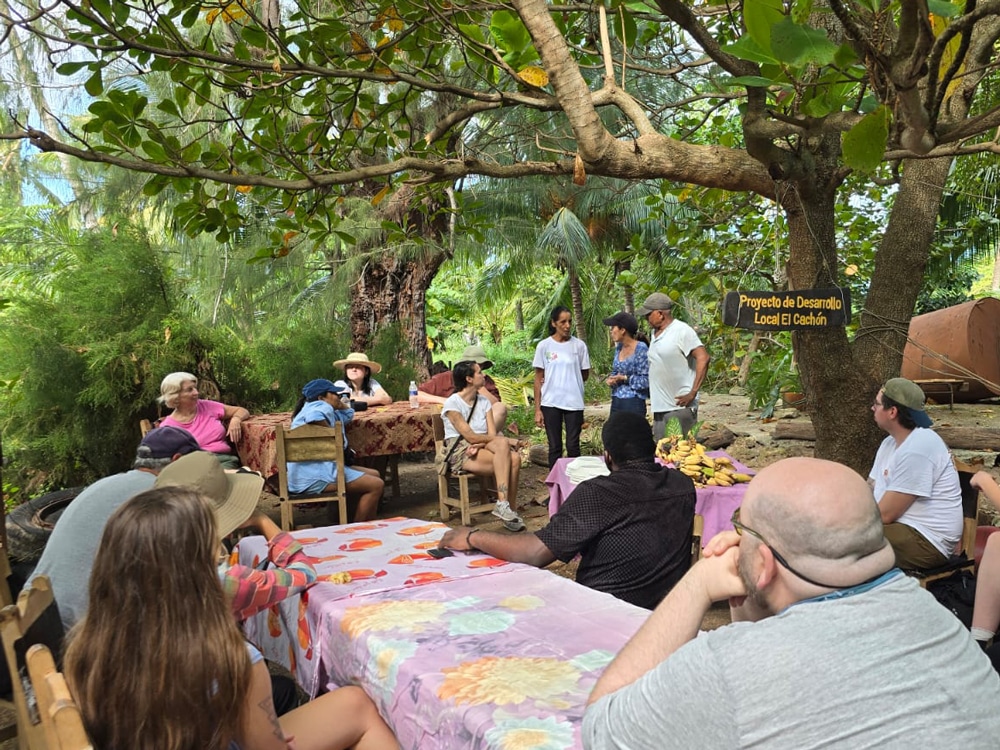
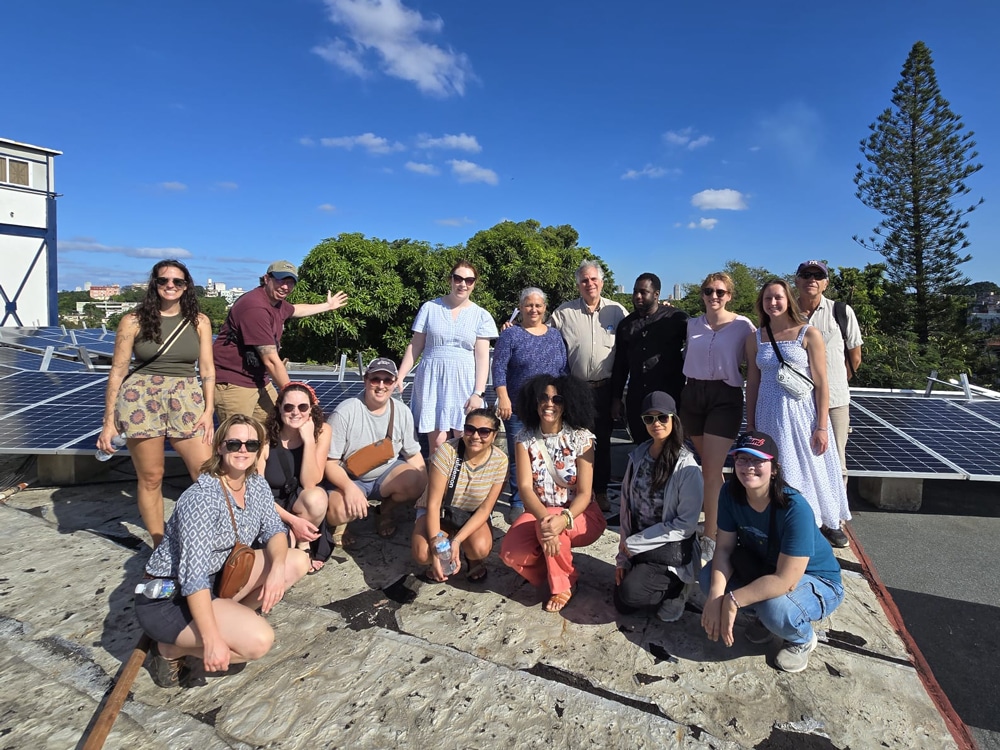
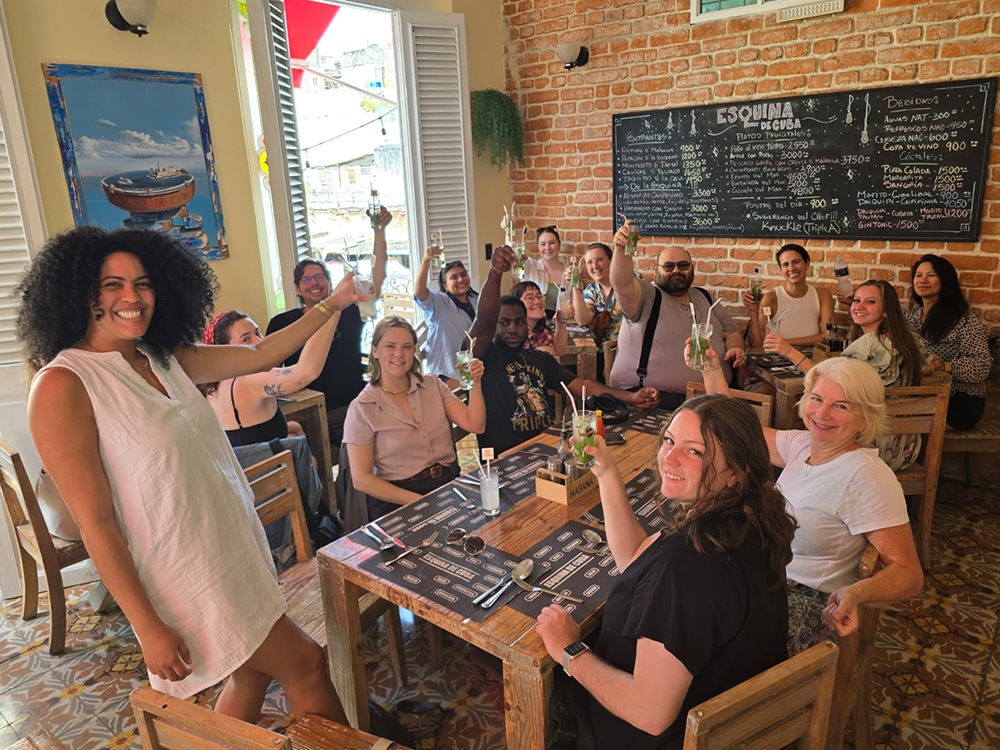
Honoring Dr. Kevin B. Jones and VLGS’s Relationship with Cuba
“Leading the Cuba class was a significant honor for me, and a great way to carry forward the legacy of Dr. Kevin B. Jones, the founder of the class, my mentor, and friend,” said Avila Alvarez.
Dr. Jones, who passed unexpectedly in January 2024, created the class and forged the connections with Cuban academics and sustainability practitioners that make it the enriching experience it is today. During the recent trip, a commemorative plaque honoring him was placed in Finca Marta, one of his favorite sites in Cuba. You can support VLGS energy students’ participation in the Global Sustainability Field Study through the Kevin B. Jones Fund.
